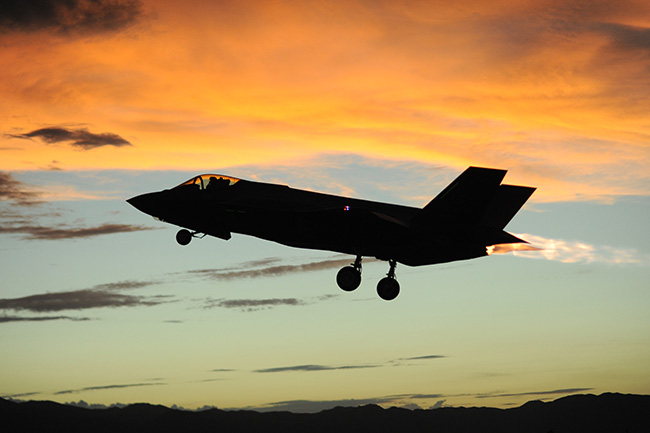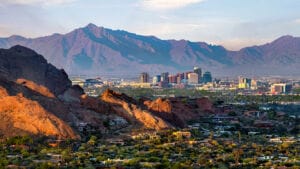Luke Air Force Base sits on thousands of acres in the West Valley. It brings more than $2 billion in economic impact to Arizona every year. And it’s a point of pride among the U.S. military as well as a respected fighter pilot training base for our allies around the world.
It is what has turned the largely agricultural Wild West of Arizona into a tech hub for aerospace and defense contractors.
“Without Luke, the West Valley may have remained largely agricultural for much longer,” says Bill Sheldon, who was interim CEO and president of WESTMARC at time of interview. “It remains an attractor of businesses from tech to retail because of the direct impact of Luke’s employees and families and the extended impact of the businesses that grew up to serve the growing community.”
Most city officials and economic developers in the region will tell you Luke and the West Valley are synonymous.
“They grew together,” says Michelle Lawrie, economic development director for Goodyear and former CEO and president of WESTMARC. “This wasn’t the chicken and the egg. Over time, they’ve grown together. It’s been a real partnership. I can’t imagine the West Valley without Luke Air Force Base.”
The base trains hundreds of pilots a year. While it’s bustling with the roar of “supersonic” F-35s, city officials are looking decades in the future of how to continue to support Luke.
“It never stops; Luke has to be present in the communities continuously,” says Goodyear Mayor Georgia Lord. “They’re never going to be disconnected. I went with (then-Gov. Jan Brewer) and (then-Glendale Mayor) Elaine Scruggs (to Washington D.C.), when we were trying to get the F-35s here. (The Air Force generals) were astounded. There wasn’t another base in the U.S. that had support like Luke has had. It has broken all records … 21,000 residents supported it and more than a thousand attended public hearings.”
The future, though, isn’t lost on Lord.
“The military has a turnover,” she says. “The big promotion right now, when these vets are ready to get out, is let’s give them an opportunity to go to school or in the job market. They’re well-trained and disciplined. That will continually grow as the Air Force makes big changes in the warfare and how many will be in the service.”
Lord explains that a lot of former military members go to the police force and fire departments in the West Valley.
“If they haven’t bought a house already, they will,” she adds.
“People don’t realize what a part of the community it is,” Lawrie says. “They may think it’s segmented away. I think people don’t realize how connected it is to decisions being made on the city and regional level.”




